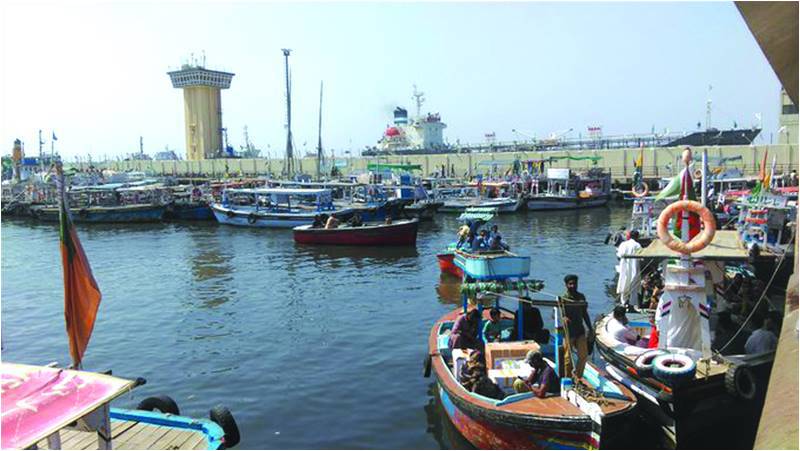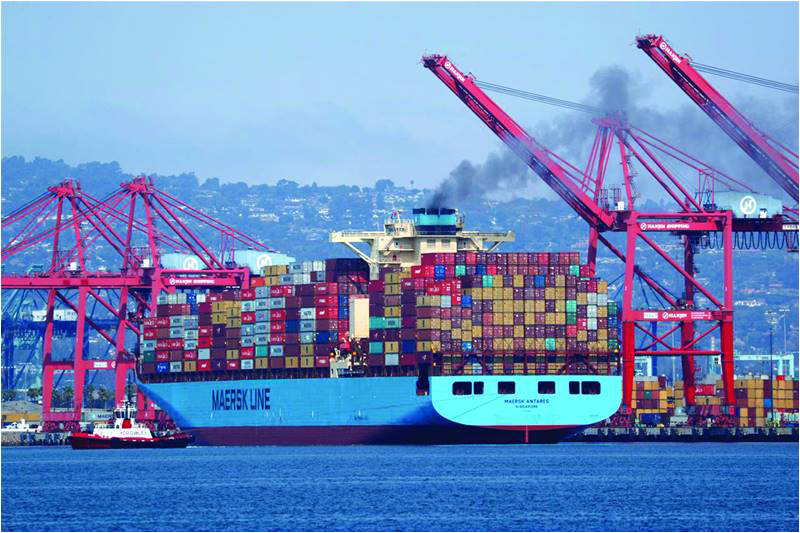
Hit with a pandemic, the country’s discussion has become a mess between lockdown or no lockdown. Where the economy of Pakistan was barely functioning, it looks like the economy hit with the COVID-19 is soon to go into a recession.
The economy of Pakistan keeps on facing one setback after another. Right when the current Prime Minister Imran Khan declared 2020 to be the year for a blue economy, the virus wrecks such optimism. This virus has not only been affecting lives but has forced the locking down of factories, trade, businesses, and almost everything to safeguard the lives of people.
Meanwhile, the situation of the maritime sector remains highly neglected in our public discussion on the damage done by COVID-19 to various sectors of our economy.
The ports and coasts In Pakistan have not been shut down as such. They are keen to follow all the safety guidelines. Not only do they follow the guidelines, but the Pakistan Navy is doing what it can to provide fishing opportunities for the coastal communities with proper safety standards to make sure that any spread of the virus does not emerge along the sea.
When 95% of trade in the country takes place thanks to the seas, it is not advisable to neglect the policy framework for the maritime sector. Pakistan’s policy-makers right now are working on nothing authentic but primarily guesswork. With such sudden flips of plans, nothing good in terms of revenue or economic stability can be achieved, let alone growth.
This slowdown of the economy is likely to soon hit the shipping industry as well as the supply chains that depend on it. One single ship in port carrying a virus may hit a great population, so the threat to public health is very real.
The concern remains that all eyes are focused on protecting land-based trade rather than planning for the health security of coastal communities - as well as the exports and imports on which this country remains highly dependent.

Quarantines and isolation cannot remain a policy for a longer period as people remain social animals, interacting rather than distancing. Yet, focusing on the mere sanitization of ships and ports is not enough: the maritime sector is a large domain that requires a proper disease control framework.
Depending on neighboring allies is not the right strategy for such a crisis as they have their own COVID-19 problems to cope with. For now, the management of the crisis, on which the blue economy stays stable and the coastal communities are trying to live, might just be enough. But the dilemma is that the pandemic is here to stay for possibly a long time, given the increase in the spread of the virus day by day. So the pandemic may further the challenges for economic activities through the ocean. It will soon become necessary for the government to think in terms of a countrywide maritime plan, rather than merely experimenting with this or that approach.
Until then, let us hope to stay safe, stay indoors and follow the rules of the government, saluting the fighters upfront: who include medical staff, and also maritime experts working upfront, risking their lives to help the global crisis from taking an even greater toll on this country.
The economy of Pakistan keeps on facing one setback after another. Right when the current Prime Minister Imran Khan declared 2020 to be the year for a blue economy, the virus wrecks such optimism. This virus has not only been affecting lives but has forced the locking down of factories, trade, businesses, and almost everything to safeguard the lives of people.
Meanwhile, the situation of the maritime sector remains highly neglected in our public discussion on the damage done by COVID-19 to various sectors of our economy.
The concern remains that all eyes are focused on protecting land-based trade rather than planning for the health security of coastal communities - as well as the exports and imports on which this country remains highly dependent
The ports and coasts In Pakistan have not been shut down as such. They are keen to follow all the safety guidelines. Not only do they follow the guidelines, but the Pakistan Navy is doing what it can to provide fishing opportunities for the coastal communities with proper safety standards to make sure that any spread of the virus does not emerge along the sea.
When 95% of trade in the country takes place thanks to the seas, it is not advisable to neglect the policy framework for the maritime sector. Pakistan’s policy-makers right now are working on nothing authentic but primarily guesswork. With such sudden flips of plans, nothing good in terms of revenue or economic stability can be achieved, let alone growth.
This slowdown of the economy is likely to soon hit the shipping industry as well as the supply chains that depend on it. One single ship in port carrying a virus may hit a great population, so the threat to public health is very real.
The concern remains that all eyes are focused on protecting land-based trade rather than planning for the health security of coastal communities - as well as the exports and imports on which this country remains highly dependent.

Quarantines and isolation cannot remain a policy for a longer period as people remain social animals, interacting rather than distancing. Yet, focusing on the mere sanitization of ships and ports is not enough: the maritime sector is a large domain that requires a proper disease control framework.
Depending on neighboring allies is not the right strategy for such a crisis as they have their own COVID-19 problems to cope with. For now, the management of the crisis, on which the blue economy stays stable and the coastal communities are trying to live, might just be enough. But the dilemma is that the pandemic is here to stay for possibly a long time, given the increase in the spread of the virus day by day. So the pandemic may further the challenges for economic activities through the ocean. It will soon become necessary for the government to think in terms of a countrywide maritime plan, rather than merely experimenting with this or that approach.
Until then, let us hope to stay safe, stay indoors and follow the rules of the government, saluting the fighters upfront: who include medical staff, and also maritime experts working upfront, risking their lives to help the global crisis from taking an even greater toll on this country.

